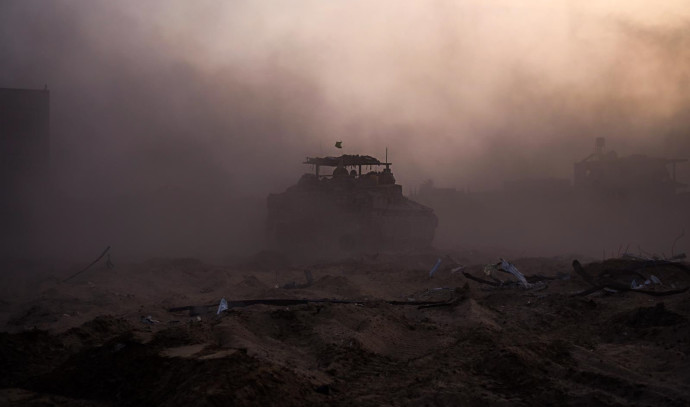The world is pitted against Israel in a way we haven’t seen before. The request last week by International Criminal Court (ICC) Chief Prosecutor Karim Khan to request the issuance of arrest warrants against Prime Minister Benjamin Netanyahu and Defense Minister Yoav Gallant is a stain on Israel – and one that will not be erased, regardless of what happens next.
This same beast reared its head on Friday afternoon when the International Court of Justice (ICJ) ordered Israel to halt its Rafah operation and enable the reopening of the Rafah crossing with Egypt for humanitarian aid. Jerusalem could reject the ruling.
Let’s not forget what this is about, and how it started: On October 7, with innocent civilians sleeping peacefully in their beds, who were butchered, mutilated, abused, and burned. Of those, 125 remain in the clutches of hell. Getting them out has to be the goal, the priority – and time has run out.
The fact that the ICJ’s decision did not condition Israel halting its Rafah operation to returning the hostages is a moral disaster. Hamas is not a party to the court, it can continue the fight, and it is shocking and shameless to order one side to stop fighting in a war while the other can do as it likes.
While it’s true that the world’s smug, sanctimonious attitude towards a just war that Israel has every right to fight is ludicrous and a disgusting double standard, our leaders made decisions that paved the way.
Israel didn't do enough to show concern for Palestinian population at war's beginning
International law is political in nature – there is no denying that. But when Israel began its military operation, it didn’t do enough to give off the impression that it was concerned with the Palestinian population at large. Think back to statements by government officials who said that basic needs will be cut off.
It is understandable that these were said in the heat of anger, but they matter, because presentation matters. Statements that lump together every Gazan as a legitimate military target have not stopped since, and only make things worse – as did footage this week of aid trucks being ransacked by Israeli right-wing extremists.
The thing that separates Israel from Hamas is, among other things, its law-abiding core. When the Jewish state announced its statehood, it committed to the privileges and commitments that come along with it – and is still bound by them today. Hamas is not playing by these rules and never has, and they are not part of its vision – which puts Israel in an impossible position. Still, the approach preached by some that Israel will fight alone if it must is dangerous and hotheaded.
We live in a globalized world that is increasingly interconnected and inter-reliant. We can’t do this alone, and we don’t want to lose our allies, near and far – it is simply not a strategic way of acting. Isolationist attitudes will not get us what we want.
How did we get here? The support and empathy that was present on October 7 are whispers in the wind now. Part of the answer is that diplomatic blunders have been made, ones that don’t seem to stop. This is not a call for blame but for deep introspection and recalibration, especially for our own elected officials.
As war cabinet Minister Benny Gantz wrote on Friday after the ICJ announced its decision: “The State of Israel set out on a just operation, left with no choice after a cruel terrorist organization massacred our civilians, raped our women, kidnapped our children and shot rockets towards our cities.
“Israel remains steadfast in its fight to return the hostages and ensure security to its citizens, wherever and whenever that may be – even in Rafah,” he said.
“We will continue to operate according to international law in Rafah and in any place we operate, and endeavor to avoid harming the civilian population – not because of the ICJ, but because, first and foremost, that is who we are.”

